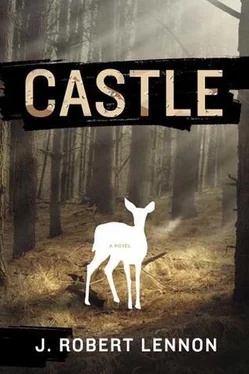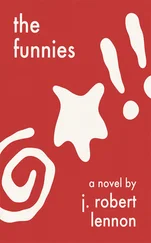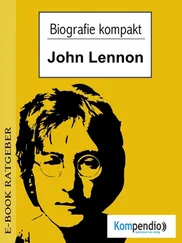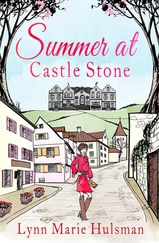In retrospect, I think it is possible that she had already begun to develop the loathing for me that she would eventually come to embrace fully, and for which I have always been more than willing to forgive her. If I might venture an armchair psychologist’s opinion, I believe that, for her, assigning me the role of my father’s confederate, and making me complicit in his shortcomings, was less painful for her than the alternative, which was to understand that she ought to have protected me from what was to come, but was powerless to do so. Thus, even at this early date, an edge of resentment and doubt could be heard in her voice, even if I was too young and inexperienced to identify it. I knew only that the question made me uncomfortable.
“N-nothing,” I replied.
“Something must have,” she demanded.
“We talked.”
“About what?”
“Just… we talked.”
My mother’s eyes were pink and wandering, taking in my face as if the truth could be found somewhere on it. When my father’s footsteps sounded on the stairs, she pulled back and resumed her work, and I resumed mine.
My sister, however, seemed to know precisely what had transpired at my meeting, or at least understood that I had been severely disciplined. She came into my room that night after I had turned out the light, and knelt by my bedside to interrogate me. The smell of her cigarettes was heavy on her, and I found her presence somehow comforting. She said, “What’d he do to you?”
“Nothing,” I answered, for the second time that day.
She shifted her body, making herself more comfortable. I could make her out, just barely, her arms wrapped around her ankles, her chin resting on her knees. “My friend Amy used to know the girl that died. His daughter. She said her mom looked like a concentration camp victim or something.” She inclined her head closer to mine and lowered her voice, as though our sleeping parents might hear. “They told her she could kill the cancer by thinking about it. And she had to wear old-fashioned dresses and stand with a book on her head.”
I didn’t respond.
“That’s why I split that time he was here,” Jill went on. “I figured it was all going to be about making me behave.”
Another moment of silence passed. Somewhere outside my cracked-open window, a dog was barking.
“Eric, did Dad hit her or something?”
“Who?” I asked.
“Mom,” she said, sounding somewhat exasperated. “She looked nuts the next day. Like… just really loony.”
I pulled the covers up to my chin. “I should go to sleep now,” I told her.
She waited. I heard her tongue move across her lips. “Just watch out for that guy, Eric,” she said. “Seriously. You don’t have to do what Dad says. You don’t have to listen to anybody.”
Jill stood up and, seemingly as an afterthought, patted my curled-up form through the blankets. A momentary impulse almost made me ask her to stay, but I kept my mouth shut. Seconds later, she was gone.
The second of my weekly meetings with Doctor Stiles proceeded in much the same way as the first, with the Doctor testing my adherence to his code of conduct, and punishing me with sudden vehemence when I strayed from it. The third week, he slapped me only once, and that merely when the chair beneath me creaked — a circumstance arguably beyond my control. By the fourth week, it was nearly summer, and Doctor Stiles had the windows of his office open, and a spring in his step. I sat, as he had commanded me, in the straight-backed wooden chair, and I had begun to experience what would eventually, in later years, come to be a familiar sense of anxious well-being. I was comfortably suspended in a web of interlocking strands of obligation, strength, and bureaucratic mastery. I was tense, alert, and on the verge of contentment. Doctor Stiles waited long minutes before he spoke, during which I stared straight ahead, at the curled yellow warrior poster on the back of the door. That poster — which I would later learn depicted Achilles’ defeat of Hector at the siege of Troy — had become the linchpin of my inner calm, the mast that I had learned to lash myself to when the ship of my tutelage encountered stormy seas.
It was around this time, I believe, that I began to feel different from the people around me. I had never been close to any of my classmates at school, but after a few weeks in Doctor Stiles’s presence, I began to take notice of their apparent lack of self-control, their irrational responses to simple problems, their disrespect for their teachers. But my feelings were more complicated than that: the teachers themselves came under my scrutiny as well, and I could not help but notice the inexpertise with which they wielded their authority. By comparison, Doctor Stiles was a master of consistency and restraint. Though I appreciated my teachers’ praise of my newly adopted poise, obedience, and serenity, I had begun to realize that they were weak leaders, easily swayed by their emotions, easily manipulated by their charges. At times, when the only response they could muster to a rowdy classroom was a deep, tired sigh, I pitied them.
Now Doctor Stiles broke the silence of his office. “Eric, I have something I wish to tell you today.”
I remained still, concentrating on the crumpled form of Hector at Achilles’ feet.
The Professor crossed the room and stood before me. “Please stand up,” he said, “and sit in the leather chair.”
I did as I was told, without registering the surprise I felt. The Doctor took my place in the wooden chair, leaning back without fear of the chair’s collapse, despite its unnerving creak. He threw one long leg over the other in a fluid, almost feminine motion, and one might have thought, to look at him, that he was more at ease there than in the soft and sturdy chair I now occupied. I gazed at him in silent anticipation.
“Perhaps you know that I am without wife or child,” the Doctor began. “My daughter died of an illness some years ago, and my wife, by a cruel coincidence, also died soon after.
“My daughter was named Rachel,” he went on, “and she was preoccupied with the notion of living in a castle. I suppose this is the case with many girls, but in Rachel’s case, the desire was very intense, and I felt duty-bound, as her father, to provide her with the same. In addition to my salary here at the college, I am fortunate to possess considerable family wealth, and I set out to create a home for my family that would fulfill my daughter’s wishes. Based on a drawing she made of the castle she envisioned, I designed a dwelling, a small castle, and hired contractors and builders to help me make it a reality. I chose a secluded, wooded area on our property, a clearing at the base of a large rock outcropping, and began construction. That was seven years ago.
“This might be difficult for you to understand, Eric, but my wife — and yes, even my daughter — did not appreciate my plans. At first they did, of course — there is a romantic charm to the idea of building a castle, in this day and age. But the project soon came to obsess me, and I lost sight of the very people whose lives I hoped to enhance with it. I spent most of my time at the building site, particularly in the summer, when the weather was fine and the college was not in session. My daughter cried herself to sleep some nights, and my wife eventually ceased conjugal relations with me.”
He paused, and frowned at me. “Do you know what that means, Eric?”
I did not speak.
“You may speak.”
“Yes, sir.”
“Tell me what it means.”
“It means sexual intercourse?”
Doctor Stiles scowled at my interrogative tone. I knew that I was on thin ice, and might soon be struck. I knew very little about sex, my mother having sketchily explained it to me after I inadvertently caught a glimpse of her in bed with my father.
Читать дальше











